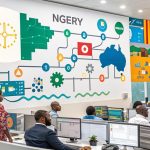At Novatia Consulting, we understand that Inclusive Workplace Consulting in Nigeria is vital for unlocking diverse talents and fostering creativity. With Nigeria's rich tapestry of over 250 ethnic groups, cultivating a culture of belonging is imperative for bridging socio-economic gaps. We are aware of challenges such as accessibility issues and social stigmas; however, our customized strategies empower organizations to establish equitable policies and deliver impactful training. By assessing progress and enhancing cultural competence, we can revolutionize your workplace dynamics and spur innovation. If you are interested in discovering how our expertise in Inclusive Workplace Consulting in Nigeria can assist you on your journey towards a more inclusive environment, there is a wealth of information to explore here.
Key Takeaways
Inclusive Workplace Consulting in Nigeria: Tailored Strategies for Organizational Success
Novatia Consulting specializes in tailored strategies for fostering inclusive workplaces in Nigeria, addressing unique organizational challenges.
Enhancing Creativity and Collaboration through Inclusive Workplace Consulting in Nigeria
Emphasizing the importance of diversity, Novatia helps organizations enhance creativity and collaboration through inclusive leadership practices.
Training Workshops on Unconscious Bias and Cultural Competence: A Key Component of Inclusive Workplace Consulting in Nigeria
The consulting firm offers training workshops on critical topics like unconscious bias and cultural competence to promote awareness and engagement.
Measuring Success in Inclusive Workplace Consulting in Nigeria: Metrics for Accountability and Improvement
Novatia measures inclusion success using clear metrics and assessments to ensure accountability and continuous improvement in workplace dynamics.
Real-World Case Studies in Inclusive Workplace Consulting in Nigeria: Driving Employee Retention and Project Success
Real-world case studies demonstrate Novatia's effective approach, leading to improved employee retention and increased project completion rates.
Importance of Inclusion
The Essential Role of Inclusion in Fostering a Thriving Workplace
Inclusion is not just a nice-to-have; it's essential for cultivating a thriving workplace. When we prioritize inclusion, we create an environment where everyone feels valued and empowered, which leads to enhanced innovation and productivity. By embracing inclusive leadership, we lay the foundation for workplace equity, ensuring that all voices are heard and respected.
As we observe the dynamics within teams, it's evident that diverse groups consistently outperform their homogeneous counterparts. By actively promoting inclusion, we harness a wealth of perspectives that drive creativity and effective problem-solving. However, achieving this isn't simply about checking boxes or meeting quotas; it's about nurturing a culture where everyone has the opportunity to excel.
Additionally, we must acknowledge that workplace equity is intrinsically linked to inclusion. It's insufficient to merely have diverse talent; we must ensure that every individual has equal access to opportunities and resources. This involves dismantling barriers and addressing systemic issues that may impede certain groups. Through inclusive leadership, we can champion these values, fostering a sense of belonging that resonates throughout the organization.
Understanding Diversity in Nigeria
Embracing Inclusion: Understanding Diversity in Nigeria's Workplace
Recognizing the significance of inclusion in the workplace naturally leads us to investigate the rich tapestry of diversity in Nigeria. As we explore this topic, we can appreciate the cultural diversity that shapes our society. Nigeria is home to over 250 ethnic groups, each contributing unique perspectives and workplace dynamics. This ethnic representation is essential when we consider how it influences organizational culture and social inclusion.
In our discussions, we must also address gender equity. Achieving a balanced representation of genders not only fosters a more inclusive environment but also improves creativity and problem-solving. Similarly, we must confront accessibility issues that can hinder participation for individuals with disabilities. By recognizing these barriers, we can work toward creating a more equitable workplace for all.
Moreover, we can't overlook generational differences that exist within our diverse workforce. Each generation brings its own values and expectations, affecting how we communicate and work together. Understanding these intersectional identities allows us to connect on a deeper level, fostering community involvement and trust among our colleagues.
In Nigeria's diverse landscape, we have the opportunity to embrace these differences and create a vibrant workplace culture that reflects our unique characteristics. By committing to understanding and valuing our diversity, we can build an inclusive workplace that not only respects but celebrates the myriad of voices and experiences that contribute to our shared success. Let's take this journey together, recognizing the importance of every individual in shaping our collective future.
Benefits of Inclusive Workplaces
The Tangible Benefits of Inclusive Workplaces
Inclusion in the workplace isn't just a moral imperative; it brings tangible benefits that can transform organizational success. By fostering an inclusive environment, we not only improve employee satisfaction but also enhance overall performance. When everyone feels valued, they are more likely to engage fully with their work, leading to significant productivity improvements.
Diverse teams bring varied perspectives that fuel creativity and innovation. This diversity not only enriches our problem-solving abilities but also helps us connect more deeply with our clients and customers. In a globalized market, understanding different viewpoints can give us a competitive edge. Furthermore, when our employees feel included, they are more likely to remain with us. High levels of employee retention reduce recruitment and training costs, which translates into a healthier bottom line.
Moreover, an inclusive workplace fosters collaboration and trust, creating a sense of belonging. This supportive atmosphere encourages open communication, allowing us to address issues swiftly and constructively. It's clear that when we prioritize inclusion, we are not just creating a better workplace culture; we are also driving our business forward.
Key Principles of Inclusion
Fostering an Inclusive Workplace: Key Principles for Success
While fostering an inclusive workplace can seem challenging, understanding the key principles that underpin inclusion can make the process more accessible and effective. At the heart of this journey lies the development of inclusive policies that encourage participation from all employees. By implementing equitable practices, we create an environment where everyone, regardless of their background, feels valued.
Driving Innovation Through Diverse Teams: The Importance of Inclusion
Diverse teams are proven to drive innovation, and we can achieve this by refining our recruitment strategies. It's essential to seek out talent from various demographics, ensuring our workforce reflects the rich tapestry of society. In addition, we must prioritize accessibility initiatives that cater to the needs of all employees, making sure that everyone can contribute fully.
Building Community and Support: The Role of Employee Resource Groups in Inclusion
An important aspect of our inclusivity efforts is providing employee resource groups that foster community and support. These groups can improve cultural awareness and help us better understand one another's experiences. It's also important to participate in bias training, as this equips us with the tools to recognize and lessen unconscious biases in our daily interactions.
The Significance of Leadership in Advancing Inclusion Principles
Strong leadership roles are significant in driving these principles forward. Leaders must embody inclusivity, demonstrating commitment through their actions and decisions. Finally, adopting effective collaboration tools can improve communication and teamwork, allowing diverse voices to be heard and respected.
Challenges to Inclusion in Nigeria
Navigating the Challenges of Inclusion in Nigeria
The landscape of inclusion in Nigeria presents a unique set of challenges that warrant our attention and understanding. As we delve into this complex issue, it is essential to identify the various barriers to participation that hinder the advancement of inclusive practices. One significant challenge is the socio-economic divide within our country, which often leads to unequal access to opportunities. This inequality leaves many talented individuals sidelined due to their background or circumstances.
Furthermore, social stigmas play a crucial role in perpetuating exclusion in Nigeria. Individuals with disabilities, for example, frequently face negative stereotypes that discourage their participation in the workforce. These misconceptions not only undermine their self-esteem but also shape the attitudes of employers and colleagues, creating an environment where inclusion becomes a significant hurdle. It is imperative to recognize that these social stigmas are deeply entrenched and necessitate active efforts for dismantlement.
Cultural norms also complicate efforts towards inclusion. In certain communities, traditional beliefs may undervalue the contributions of marginalized groups, fostering an atmosphere where their voices remain unheard. This exclusion can lead to a pervasive sense of isolation and disenfranchisement among those who do not conform to conventional standards.
To genuinely cultivate an inclusive workplace in Nigeria, we must confront these challenges directly. By understanding the barriers to participation and actively working to reshape the narratives surrounding social stigmas, we can create a more equitable environment for all. Together, we can forge a path towards a future where every individual feels valued and included.
Novatia's Consulting Approach
Addressing the barriers to inclusion in Nigeria is a complex challenge that requires a thoughtful and strategic consulting approach, which is where Novatia excels. Our methodology is deeply rooted in understanding the unique challenges that organizations encounter while fostering an inclusive environment. We believe that inclusion is not merely a checkbox; it is a transformative journey that demands thorough analysis and a steadfast commitment to change.
At Novatia, we prioritize client collaboration throughout the consulting process. By engaging with you, we gain valuable insights into your organizational culture, values, and specific needs. This collaborative approach ensures that we provide tailored solutions rather than generic ones. Together, we can identify the systemic barriers that hinder inclusion and develop actionable plans to effectively address them.
We utilize a combination of qualitative and quantitative research methods to assess the current state of your workplace. Through surveys, interviews, and focus groups, we collect data that enhances our understanding of your organization's dynamics. This evidence-based approach empowers us to craft strategies that are not only effective but also sustainable over time.
Ultimately, our goal is to enable your organization to cultivate an inclusive workplace that values diversity in all its forms. By merging our expertise with your insights, we are confident that we can create a pathway to authentic inclusion that benefits everyone within your organization. Together, let us take the necessary steps towards building an inclusive workplace in Nigeria.
Tailored Strategies for Organizations
In the pursuit of fostering an inclusive workplace, we recognize that a one-size-fits-all approach simply won't cut it. Each organization is unique, with its own culture, challenges, and diversity needs. That's why we focus on creating tailored strategies that resonate with your specific context. Our goal is to understand your organization's dynamics and craft interventions that correspond with your values and objectives.
We believe that effective inclusivity starts with a solid foundation of strategic frameworks. These frameworks guide us in identifying the key areas where tailored strategies can have the most impact. By analyzing your current practices and gathering insights from your team, we can pinpoint the gaps that need addressing. This collaborative approach not only involves your workforce but also fosters a sense of ownership over the changes we propose.
Tailored strategies can include workshops to improve awareness, mentorship programs that connect diverse employees, or policies that support work-life balance. Each intervention we suggest is designed to be practical, actionable, and measurable, ensuring that we're not just talking about inclusivity but actively working toward it.
Measuring Inclusion Success
To truly measure inclusion success, we must focus on understanding the effectiveness of our tailored strategies. Establishing clear inclusion metrics is essential in guiding our efforts and reflecting the actual experiences of our team members. By defining what success looks like in terms of inclusion, we can ensure that our strategies are not just theoretical but practically impactful.
Utilizing various assessment tools allows us to gather both quantitative and qualitative data on workplace inclusion. Surveys and feedback mechanisms enable us to gauge employee perceptions regarding our diversity and inclusion efforts. Additionally, analyzing recruitment, retention, and promotion rates across different demographics provides a clearer picture of how inclusive our workplace truly is.
Regular assessments help us identify trends and areas needing improvement. It's not merely about collecting data; it's about analyzing it thoughtfully to inform our next steps. For instance, if we observe a disparity in promotion rates, we can delve deeper to understand the underlying causes and address them effectively.
This ongoing measurement of inclusion success fosters a culture of accountability and transparency. It reassures our team that their voices and experiences are valued, cultivating a sense of belonging. Ultimately, by concentrating on inclusion metrics and employing robust assessment tools, we can celebrate our successes while continually striving for a more inclusive workplace. Let's commit to this journey together, ensuring that every individual feels valued and empowered within our organization.
Training and Workshops Offered
Creating an Inclusive Workplace: Ongoing Education and Involvement
At Novatia Consulting, we understand that creating an inclusive workplace goes beyond implementing policies; it requires continuous education and active participation. Our training and workshops are thoughtfully designed to assist organizations in Nigeria on this essential journey. We offer a variety of workshop formats tailored to meet the unique needs of your team, whether through interactive sessions, online modules, or on-site training.
Our training methodologies prioritize experiential learning, allowing participants to engage with real-world scenarios. This hands-on approach not only enhances understanding but also fosters collaboration and dialogue among team members. We firmly believe that when individuals feel heard and valued, they are more inclined to contribute positively to the workplace environment.
Essential Topics for an Inclusive Workplace: Unconscious Bias, Communication, and Cultural Competence
We cover critical topics such as unconscious bias, effective communication, and cultural competence. By equipping your team with these vital skills, we cultivate a shared understanding of the significance of inclusivity. Each session is specifically tailored to encourage open discussions, enabling everyone to share their perspectives and experiences.
Resources for Continuous Learning: Extending Insights Beyond the Workshop
In addition, we provide resources for continuous learning, ensuring that the insights gained during our workshops extend well beyond the training room. Participants leave not only with knowledge but also with actionable strategies that can be implemented immediately. Together, we can establish a workplace culture that embraces diversity and fosters a sense of belonging, paving the way for innovation and success. Let's embark on this transformative journey together!
Case Studies of Success
Case Studies of Success: Transforming Workplaces through Inclusivity
Success in fostering an inclusive workplace often hinges on real-world examples that illustrate the tangible benefits of our efforts. At Novatia Consulting, we've witnessed firsthand how implementing best practices in inclusive workplace consulting in Nigeria can lead to remarkable transformations.
Take, for instance, a mid-sized tech company we partnered with last year. They were struggling with employee retention and a lack of diversity in leadership roles. By introducing tailored workshops focused on unconscious bias and inclusive leadership, we not only equipped their management team with the necessary tools but also cultivated a culture of openness and respect. Within six months, we saw a 30% improvement in employee involvement scores, a clear success metric indicating the effectiveness of our approach.
Another success story comes from a manufacturing firm that faced challenges in communication among diverse teams. We implemented a mentorship program that paired seasoned employees with newcomers from varied backgrounds. This initiative not only improved collaboration but also increased innovation within project teams. Their annual performance review indicated a 40% increase in project completion rates, demonstrating how inclusivity can drive productivity.
These case studies emphasize the importance of commitment to best practices in creating inclusive environments. The metrics we track show that investing in an inclusive workplace isn't just a moral imperative; it's a strategic advantage that yields measurable results. By sharing these successes, we hope to inspire other organizations to embrace inclusivity as a pathway to growth and innovation.
Employee Engagement Strategies
Unlocking Team Potential Through Thoughtful Employee Involvement Strategies
Revealing the full potential of our teams requires thoughtful employee involvement strategies that resonate with everyone. We understand that fostering an inclusive workplace hinges on effective employee participation strategies that not only elevate morale but also drive productivity. To achieve this, we must prioritize collecting genuine employee feedback, ensuring that every voice is heard and valued.
Implementing a variety of participation tools can greatly improve our approach. For instance, regular pulse surveys can help us gauge employee sentiment and identify areas for improvement. By making these surveys accessible and easy to participate in, we encourage open communication, which is key to understanding our team's needs.
Moreover, we can create collaborative spaces where employees feel comfortable sharing their ideas and suggestions. These spaces can include brainstorming sessions, workshops, or even informal gatherings. By nurturing an environment of trust and mutual respect, we enable our teams to take ownership of their roles, fostering a sense of belonging.
In addition, recognizing and celebrating individual and team achievements can greatly improve participation. When we highlight contributions, we not only motivate employees but also reinforce the idea that their efforts matter.
Ultimately, our commitment to incorporating employee feedback and utilizing participation tools will create a vibrant workplace culture. By implementing these strategies, we can drive meaningful connections among our team members, leading to a more inclusive and productive environment for everyone. Let's start on this journey together, ensuring that every team member feels valued and involved.
Legal Framework for Inclusion
Understanding the Legal Framework for Inclusion: Fostering an Equitable Workplace
Understanding the legal framework for inclusion is fundamental for fostering a truly equitable workplace. We often overlook how essential legal policies are in promoting an inclusive environment. Anti-discrimination laws serve as the backbone of these frameworks, guaranteeing that all employees have equal opportunities regardless of their background. It's our responsibility to create an atmosphere where everyone feels valued.
Inclusive Recruitment Practices: A Key Component of the Legal Framework
Inclusive recruitment practices are imperative. By actively seeking diverse candidates, we can improve employee representation across various demographics. This not only enriches our organizational culture but also drives innovation and creativity. Workplace accessibility is another critical component; making sure that our physical and virtual environments cater to everyone's needs is a must.
Conducting Regular Diversity Audits: Assessing Our Commitment to the Legal Framework
Regular diversity audits help us assess our current standing and identify areas for improvement. These assessments highlight our commitment to corporate responsibility, as we aim to create workplaces that reflect the communities we serve. By engaging in community outreach, we can strengthen our relationships and confirm our policies resonate beyond the office walls.
Embracing the Legal Framework: A Mindset for Diversity and Inclusion
Ultimately, the legal framework is more than just rules and regulations. It's about embracing a mindset that values diversity and inclusion at every level. When we synchronize our strategies with these laws, we nurture a workplace that not only complies with legal mandates but also champions the principles of equity and respect. Let's work together to guarantee our organizations are models of inclusion, paving the way for a better future for all employees.
Cultural Competence in the Workplace
Creating an Inclusive Workplace Through Cultural Competence
Creating an inclusive workplace goes hand in hand with developing cultural competence among our teams. As we navigate through increasingly diverse environments, understanding and embracing cultural differences is crucial for fostering collaboration and enhancing workplace dynamics. It's not just about recognizing these differences; it's about appreciating the unique perspectives each team member brings to the table.
Cultural competence is essential in this journey. When we actively seek to understand the backgrounds, beliefs, and values of our colleagues, we not only enrich our own experiences but also create a supportive atmosphere. This effort can lead to more effective communication, reduced conflict, and increased innovation. We find that when team members feel valued and included, they are more likely to contribute their best ideas and efforts.
Moreover, developing cultural competence allows us to navigate the complexities of workplace dynamics with greater ease. We learn to identify unconscious biases and challenge stereotypes, cultivating an environment where everyone feels safe to express themselves. This shift isn't just beneficial for individual growth; it positively impacts team cohesion and overall productivity.
As we collectively improve our cultural competence, we are not just building a better workplace; we are creating a community that thrives on diversity and inclusion. Let's commit to this ongoing journey of learning and growth, understanding that our differences are not barriers but bridges to greater understanding and success. Together, we can transform our workplace into a truly inclusive space where everyone can flourish.
Future Trends in Workplace Inclusion
In the evolving landscape of workplace inclusion, adaptability emerges as an essential quality for organizations aiming to thrive. As we navigate the future, we will witness the impact of emerging technologies that enhance collaboration and inclusivity, particularly in remote work environments. By leveraging these tools, we can create more effective employee resource groups that amplify diverse voices and foster community.
Generational shifts are also playing a significant role in shaping workplace inclusion. Younger employees are advocating for intersectional approaches that address various identities and experiences. This demand compels organizations to rethink their workplace policies and leadership strategies, ensuring that everyone feels valued and included. It is crucial to embrace global perspectives, recognizing that inclusion varies greatly across cultures and regions.
Mental health has become a focal point in the conversation surrounding workplace inclusion. By prioritizing mental well-being, we not only support our employees but also cultivate an environment where everyone can thrive. Advocacy initiatives are vital in this journey; they help elevate voices that might otherwise go unheard and drive meaningful change.
As we look ahead, our commitment to inclusivity must remain steadfast. We should anticipate the need for continuous learning and adaptation, encouraging open dialogues about diversity and inclusion. Together, let's pledge to create workplaces where everyone, regardless of their background, feels motivated to contribute their best selves. By proactively addressing these trends, we will not only enhance our organizational culture but also pave the way for a brighter, more inclusive future.
Getting Started With Novatia
As we embrace the future trends in workplace inclusion, it's essential to consider how organizations like Novatia can assist us in effectively implementing these changes. We recognize that fostering an inclusive environment requires a thoughtful approach, and Novatia's expertise can guide us on this journey. By concentrating on the nuances of team dynamics, we can cultivate a culture where every voice is valued and heard.
Getting started with Novatia involves first understanding our unique organizational context. They assist us in assessing current leadership styles and identifying gaps in our inclusion strategies. Through tailored workshops and training sessions, Novatia equips leaders with the necessary tools to adapt their approaches, ensuring that inclusivity becomes a core value rather than an afterthought.
We can also leverage Novatia's insights into best practices for enhancing team dynamics. By promoting collaboration and open communication among team members, we can dismantle barriers that impede diversity. This not only elevates morale but also enhances productivity, as diverse teams often lead to more innovative solutions.
Furthermore, Novatia emphasizes ongoing support and evaluation, acknowledging that inclusion is a continuous journey. With their guidance, we will be able to monitor our progress and make necessary adjustments, ensuring our workplace remains adaptive and responsive to the needs of all employees. Together, let's take this crucial step towards creating a truly inclusive workplace that mirrors the diverse world we live in.
Frequently Asked Questions
What Industries Can Benefit From Inclusive Workplace Consulting in Nigeria?
Title: "Unlocking Potential: How Inclusive Workplace Consulting Can Transform Nigeria's Education Sector"
We believe that the education sector in Nigeria can greatly benefit from inclusive workplace consulting. Institutions often struggle with diversity training and employee involvement. By fostering an inclusive culture, schools and universities can improve productivity and innovation. When everyone feels valued, it creates a positive learning environment that attracts diverse talent. Let's work together to build educational workplaces that embrace difference and drive success through inclusivity.
—
Title: "Enhancing Healthcare Outcomes: The Role of Inclusive Workplace Consulting in Nigeria's Medical Sector"
We believe that the healthcare sector in Nigeria can greatly benefit from inclusive workplace consulting. Hospitals and clinics often grapple with diversity training and employee engagement. By fostering an inclusive culture, healthcare providers can improve productivity and innovation in patient care. When all staff members feel valued, it creates a positive environment that attracts diverse talent. Let's work together to build healthcare workplaces that embrace difference and drive success through inclusivity.
—
Title: "Driving Innovation: The Impact of Inclusive Workplace Consulting on Nigeria's Technology Industry"
We believe that the technology sector in Nigeria can greatly benefit from inclusive workplace consulting. Tech companies often face challenges with diversity training and employee participation. By fostering an inclusive culture, these companies can enhance productivity and spur innovation. When everyone feels valued, it creates a dynamic work environment that attracts diverse talent. Let's work together to build technology workplaces that embrace difference and drive success through inclusivity.
How Long Does the Consulting Process Typically Take?
When considering the consulting timeline, it is essential to understand that the process typically unfolds in distinct phases. Initially, we conduct a thorough assessment of the organization's current state, which can take a few weeks. Following this, we develop tailored strategies, and implementation may extend over several months. Overall, we find that the entire consulting process can take anywhere from three to six months, depending on the organization's size and specific needs. Rest assured, we are here to support you every step of the way throughout this consulting journey.
What Qualifications Do Novatia Consultants Possess?
When we consider the qualifications of Novatia consultants, it becomes evident that they bring a wealth of expertise to the table. Their backgrounds in HR and organizational development equip them to create effective diversity strategies that truly resonate with diverse workforces. We've observed their analytical approach in action, fostering inclusive environments that make workplaces more welcoming for everyone. With a deep understanding of various cultural dynamics, we are confident in their ability to guide organizations toward meaningful transformation and lasting change.
Are There Specific Tools Used to Measure Inclusion Effectiveness?
When we think about measuring inclusion effectiveness, we need to contemplate various inclusion metrics. Employee feedback serves as a key tool in this process, enabling us to gather insights directly from team members about their experiences. This feedback not only helps us identify areas for improvement but also allows us to track progress over time. By integrating quantitative data with qualitative input, we can develop a more comprehensive understanding of how inclusive our workplace truly is.
How Can Organizations Maintain Inclusion Over Time After Consulting?
To maintain inclusion over time, it is crucial to prioritize ongoing training that sustains inclusion within the organization. Regularly revisiting our goals and practices ensures that every individual feels valued and heard. Establishing feedback loops enables us to adapt and grow collectively. By cultivating an environment that promotes continuous learning and open dialogue, we can keep inclusion at the forefront of our initiatives, embedding it as a fundamental aspect of our organizational culture that endures long after the initial consulting phase.







